Madrid, a sustainable MICE destination
15 November, 2023Concern for the environment and preserving local cultures has reached every professional sphere, including the MICE segment, and Madrid is working to achieve recognition as one of the most attractive destinations for sustainable professional events. From its wealth of green spaces and culture to its innovative platform for comprehensive management of legacy and sustainability in meetings, the city has plenty of attractions.
Walking, breathing clean air, discovering, enjoying local foods, buying authentic goods, and leaving a positive footprint in the city are among the many attractions Madrid offers as a destination for incentive trips or any MICE event that prioritizes sustainability, with the aim of helping us build a greener future together for Madrid and for the planet.
Planning a walking tour of the city
One of the first things to be included in an incentive trip to a city is a tour of its main places of interest, and in Madrid this can be done in the simplest way possible: on foot. The city's extensive pedestrian zones and wide sidewalks like those along Gran Vía avenue and Calle de Alcalá offer a convenient way to explore different areas and visit its monuments in the greenest way possible in terms of CO2. Moreover, the Spanish capital receives almost 3,000 of sunshine per year, which certainly makes an outdoor tour much more enjoyable.
Walking through Madrid makes it clear that it’s a city designed for people. One example is the redesigned Plaza de España, an iconic square from which you can now reach emblematic places like the Royal Palace and Temple of Debod on foot. Another is the famous and centrally located Puerta del Sol, which has been completely renovated to make it a pedestrian zone.
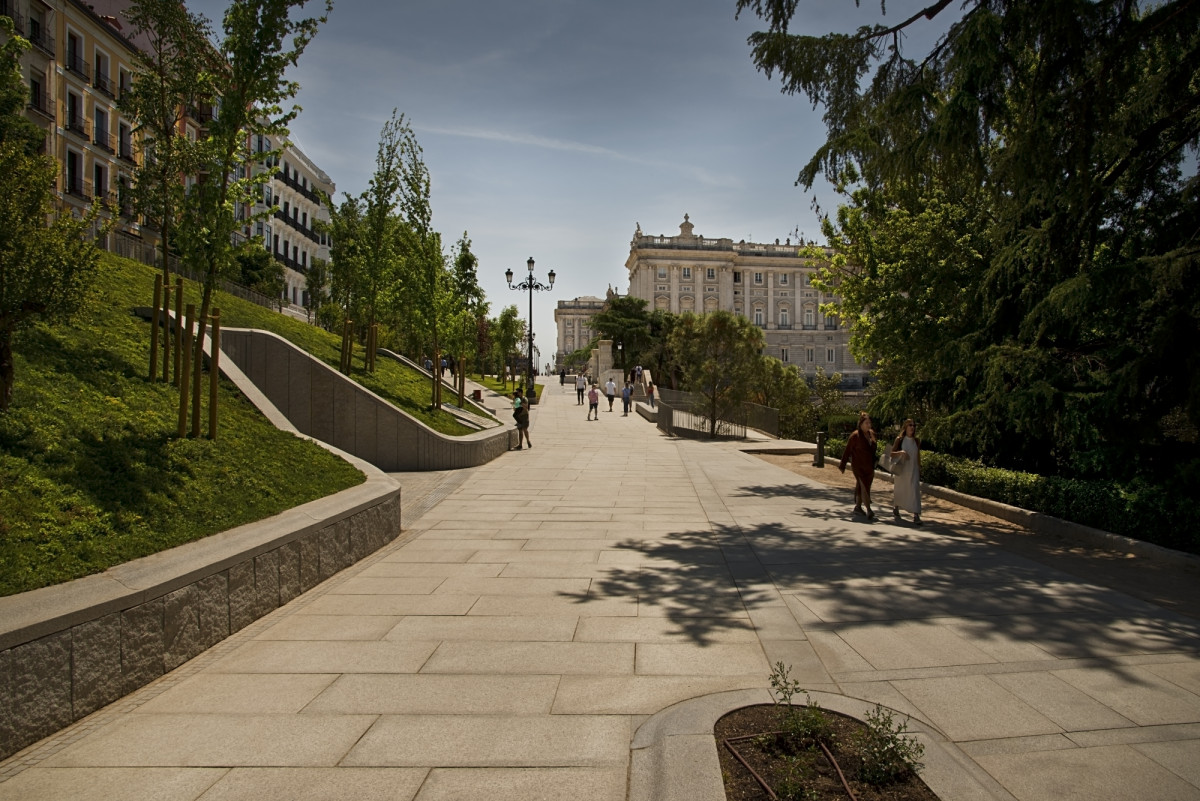
One of the biggest advantages of exploring the city on foot is that you can enjoy its trees. Over 55% of Madrid’s streets are tree-lined, with almost 300,000 trees helping to improve its air quality and making it the world's second-leafiest city in terms of tree-lined streets, preceded only by Tokyo. It is worth noting that Madrid has been named a “Tree City of the World”, a distinction awarded by the Food and Agriculture Organization of the United Nations (FAO) and the Arbor Day Foundation.
Another ideal—and sustainable—way for a group to explore Madrid is by bike, using the city's cycle lanes and the cycle path that forms a ring around its urban heart. Madrid also features BiciMAD, a service with almost 258 docking stations and over 3,000 fully electric bicycles, as well as multiple businesses that rent out bikes, especially near the city’s major parks and central areas.
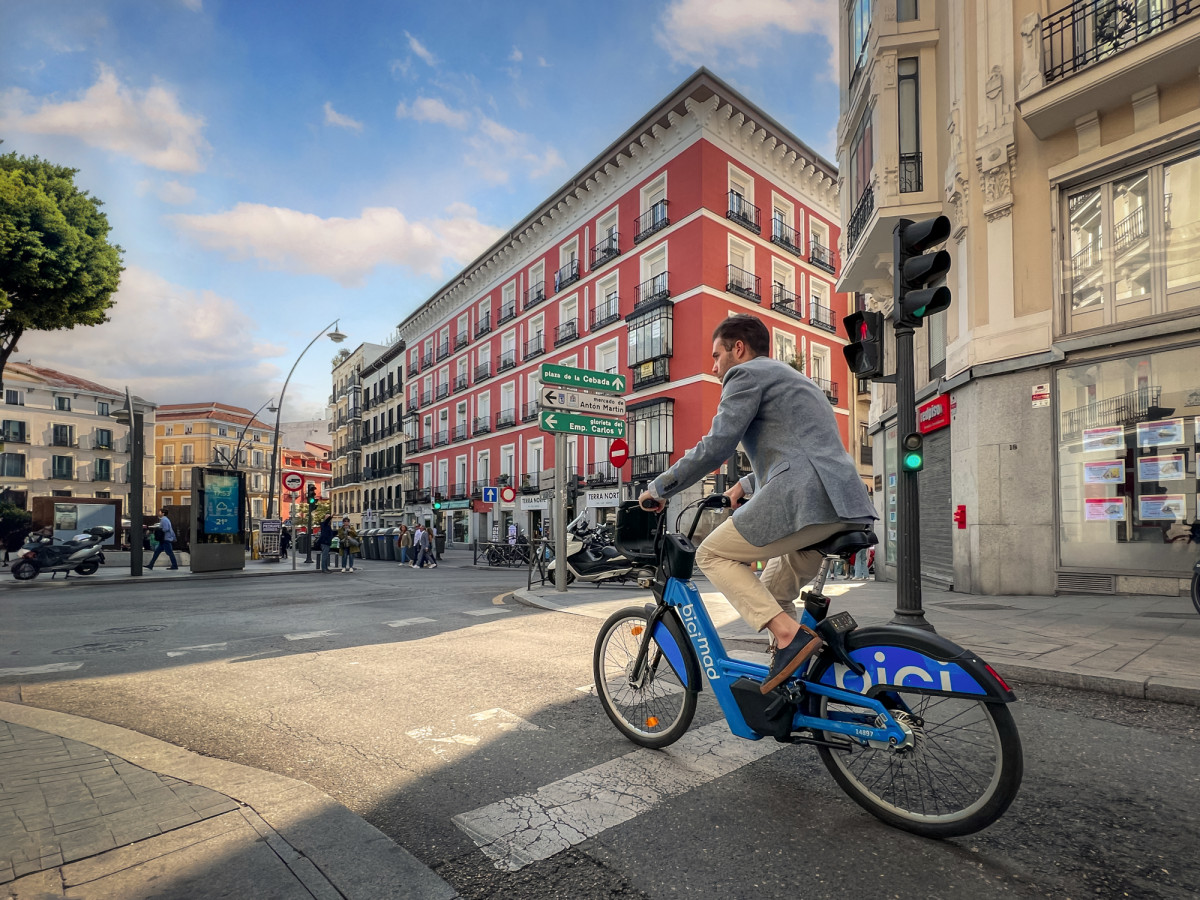
Discovering Madrid’s natural heritage
With more than 200 parks, gardens, and natural spaces adding up to almost 16,000 acres of green heritage, there’s an endless range of options for having fun in healthy settings. One of them is El Retiro Park, a major historical treasure and UNESCO World Heritage Site in the heart of the city. Another is Madrid Río Park, which stretches for over six miles along the banks of the Manzanares River and is a great place to walk, exercise or appreciate the ecological restoration carried out in the area, which has led to the return of numerous species. Casa de Campo Park is also very close by. Declared a Site of Cultural Interest, it offers over 3,700 acres for leisure, sports, and recreation and is the perfect place to hold outdoor activities.
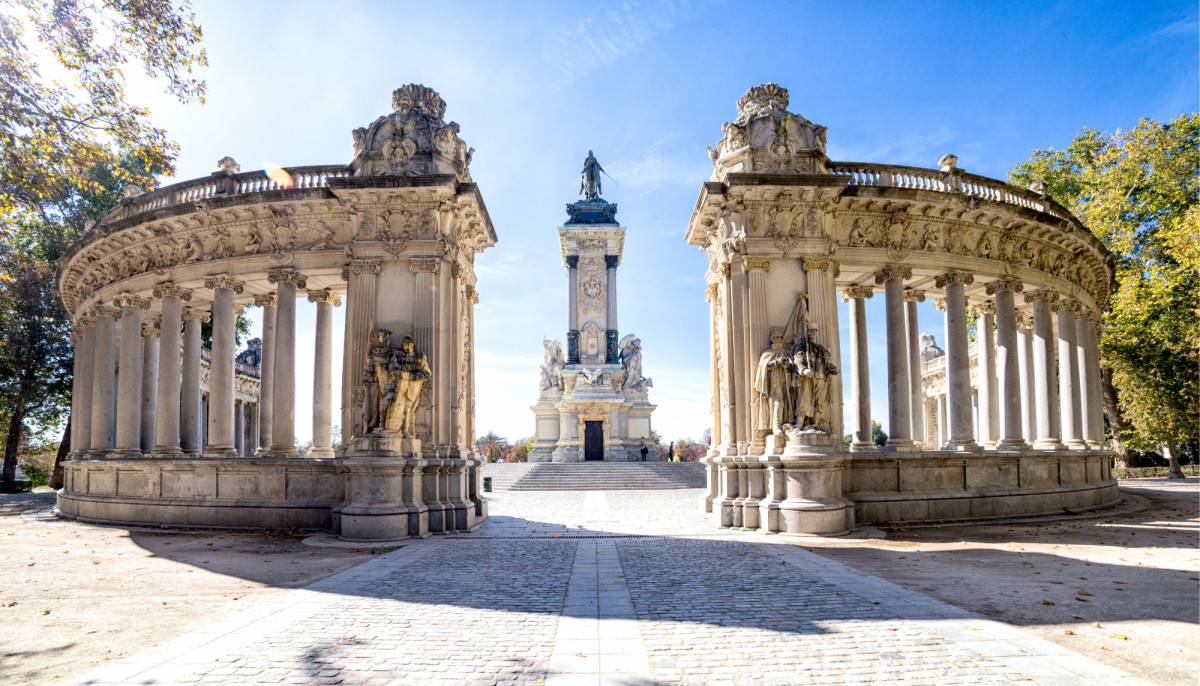
You don’t have to leave the central zone, however, to find little gardens tucked away which make the perfect addition to a green tour while veering a little off the beaten track. Examples include the gardens of Anglona Palace and San Francisco el Grande, or if you want to venture farther away on a route that takes you to areas less frequented by tourists but still bursting with personality, there are some fantastic historical gardens like those of Finca de Vista Alegre and El Capricho Park.
And that’s not all. Madrid is also developing new green spaces like the Metropolitan Forest, which will be a 75-kilometre-long green belt around the city with expansive areas for walking and sports.
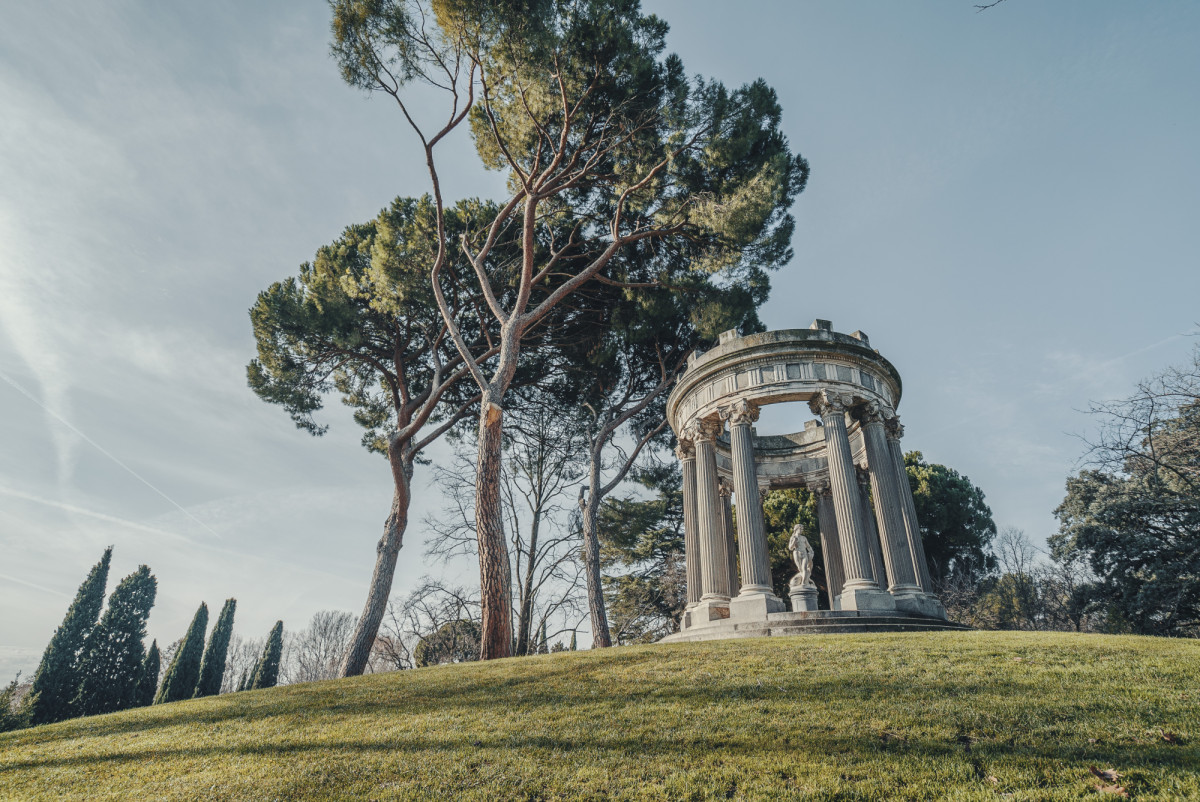
Enjoying the local cuisine
Zero-mile food and products with the Madrid designation of origin, markets with unique, high-quality offerings, and restaurants that have worked hard to include organic food in their menus are some of the culinary options found in Madrid which are sure to please event organizers committed to protecting the environment.
Sustainability is a prevalent feature on Madrid's restaurant scene, with establishments all over the city making it a priority. Gourmet restaurants are no exception. El Invernadero, for instance, which is run by Madrid-born chef Rodrigo de la Calle, has been awarded a Green Michelin Star. This distinction, which recognizes commitment to sustainable gastronomy, is also held by Mario Sandoval’s two-Michelin-starred restaurant Coque.
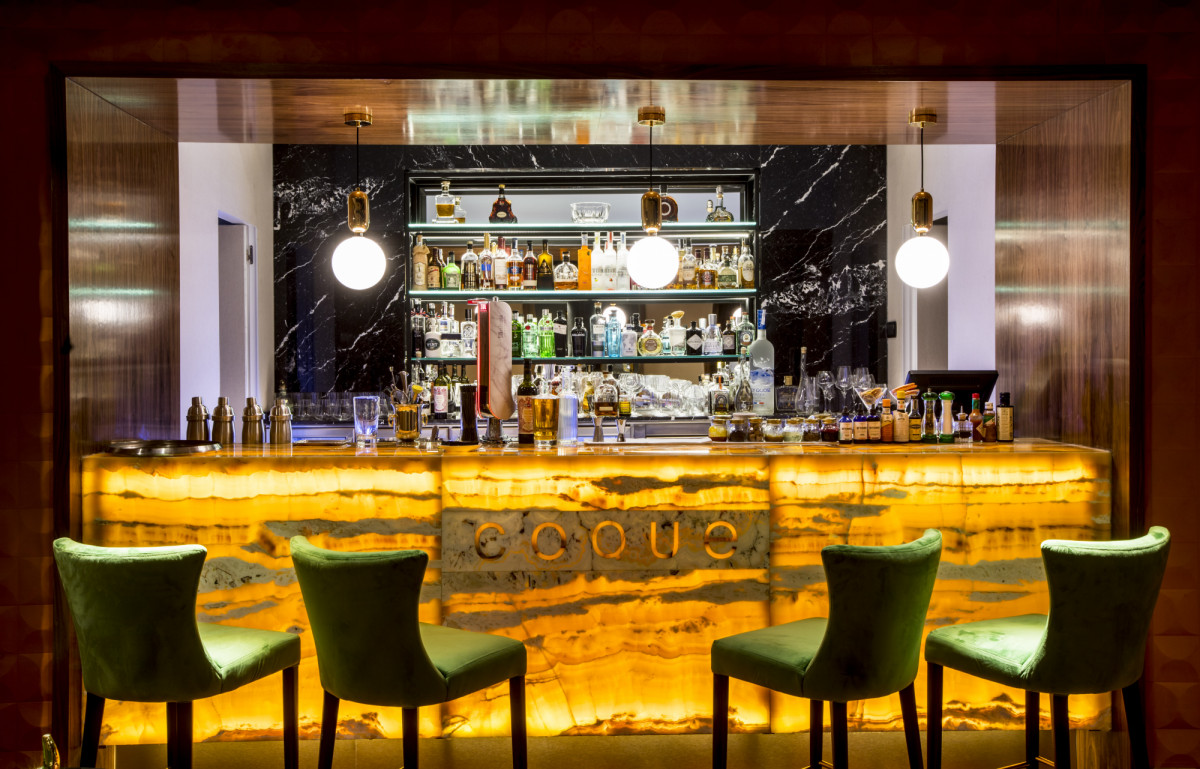
Many other experiences lend themselves to a sustainable culinary tour of Madrid, such as holding a lunch in one of its markets. At markets like San Miguel, San Antón and Vallehermoso, for example, the FLOSS philosophy (Fresh, Local, Organic, Seasonal and Sustainable) plays a prominent role. Madrid also has the distinction of being home to products endorsed with the regional Designation of Origin in recognition of their quality and the control measures used in their production. In addition to acclaimed wines, it produces world-famous extra virgin olive oil. Both are ideal inclusions when putting together a healthy, sustainable Madrid-style meal.
Purchasing artisanal goods
Setting some time aside in an incentive trip for shopping can be not just fun but sustainable too. The best way to achieve this is by purchasing artisanal goods made in Madrid, whose sale helps preserve local trade and culture. Many such products are found in areas like Salesas, Lavapiés, Las Letras, Chueca, Malasaña, Conde Duque, La Latina, and Los Austrias. Another very interesting option is to arrange a workshop at an artisanal business, where participants learn to make their own goods under the guidance of Madrid’s most talented craftspeople.
You’ll find capes, gloves, hats, crockery, fans, Manila shawls, jewelry, bags, furniture, tapestries, guitars, wicker goods and more. All sorts of trades have been passed down from generation to generation
Some businesses, like Capas Seseña, Sombrerería Medrano, and Guitarras Ramírez, are over a century old and are part of the city’s history, while goods like the “environmentally-friendly trophies” Javier Medina makes from materials like bamboo and the necklaces and bracelets crafted by Andrés Gallardo in his studio-shop in Barrio de las Letras (Literary Quarter) are being made by a new generation that is driving the “Made in Madrid” phenomenon.
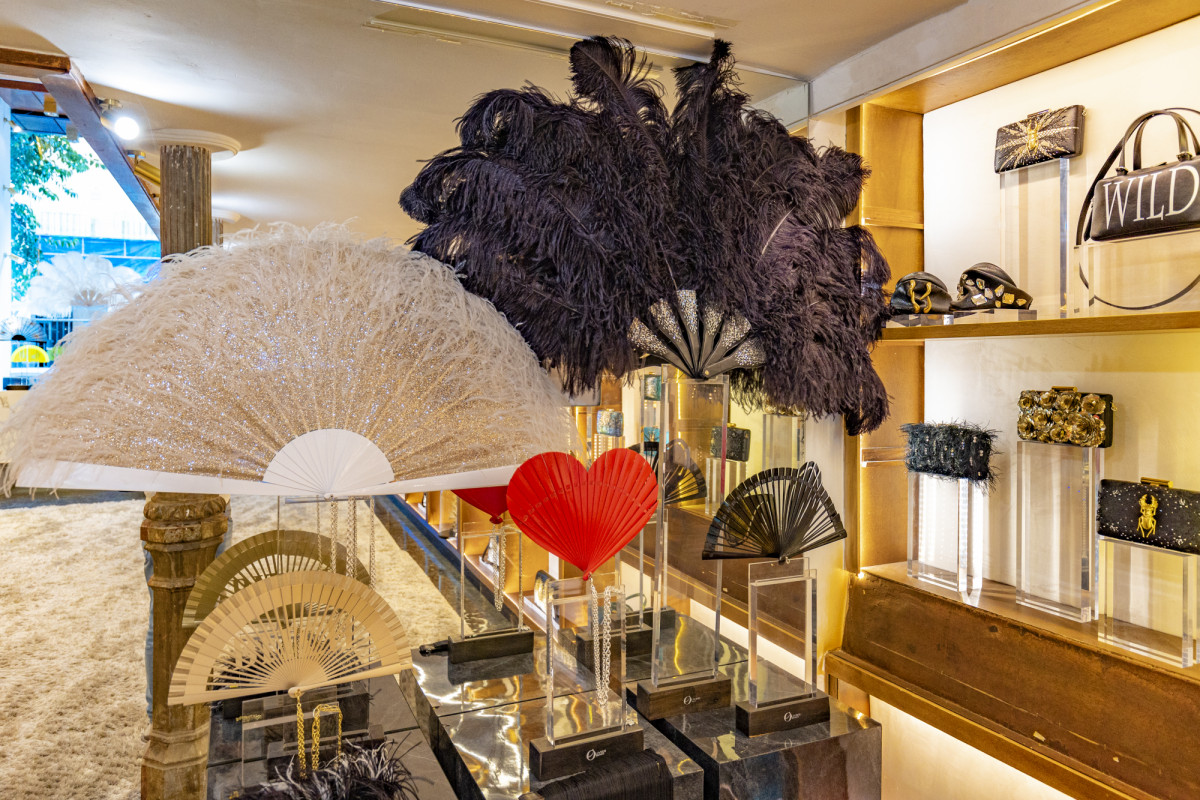
Another option is to visit a business that specializes in making products out of recycled materials. Shops like Ecoalf, which makes its designer clothes using materials salvaged from the sea, and The Circular Project, which prioritizes ecodesign, are examples of sustainable retailers.
The PLUS tool
Madrid's deep commitment to environmental protection led Madrid Convention Bureau (MCB) to launch PLUS Legacy with US, a pioneer initiative in Spain consisting of a digital platform that helps organizers effectively manage the sustainability and legacy of their events in line with the 17 Sustainable Development Goals (SDGs) laid out in the UN's 2030 Agenda.
The tool allows individual sustainability reports to be created for every meeting held in Madrid and provides recommendations to minimize their environmental and social impact, with the distinction that the analyses are performed before the events are held so that organizers can make changes during the planning stage
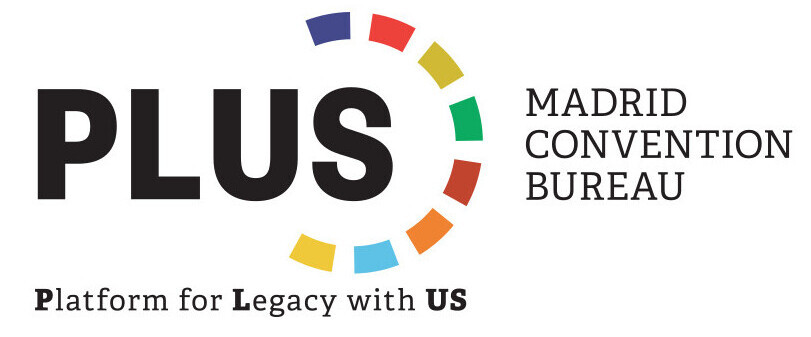
Another of MCB's objectives is to support associations—and private organizations—that want their conferences or events to contribute to quantifiable, long-lasting positive change in the city. There is a growing conviction among host destinations that a meeting should create legacy, and associations and companies are increasingly bringing their missions and visions into line with the aims of the places where they hold their meetings. MCB aims to position itself as a key point of liaison to ensure that meetings held in Madrid leave a positive mark on the city.
For more information: